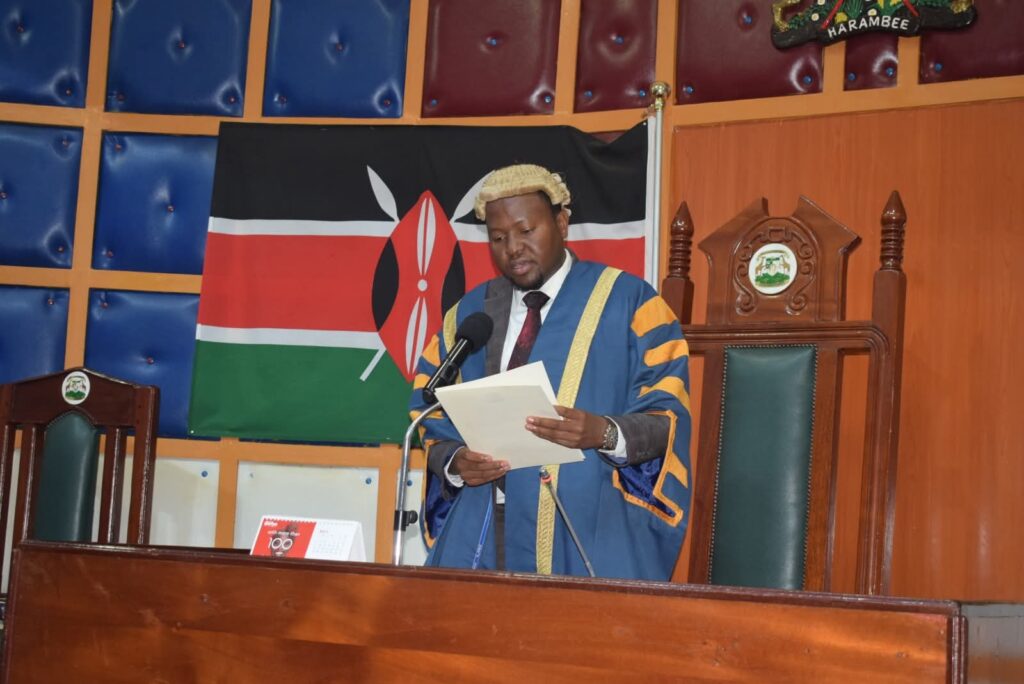Speaker Kevin Kinengo Katisya has survived an impeachment attempt after the Clerk of the Kitui County Assembly declared a motion to remove him inadmissible, terming it procedurally and substantively defective.

In a letter dated 26th September 2025, addressed to Matinyani Ward MCA Sylvester Kitheka Munyalo, who sponsored the ouster bid, the Clerk acknowledged receipt of the motion but ruled that it collapsed on nearly every legal and procedural ground.
The Clerk explained that the motion was flawed from the onset, noting that it did not clearly identify its mover as required under Standing Order 44. Without ownership, the notice of motion was deemed to have failed the prescribed form and was therefore inadmissible.
The impeachment bid further suffered a blow over the issue of supporting signatures. The Clerk said the attached list was merely a photocopy that did not clearly state its purpose, leaving doubt on whether members who signed it fully understood what they were endorsing. Citing the Mike Sonko v Clerk, Nairobi County Assembly & Others (2022) case, the Clerk stressed that impeachment proceedings demand strict verification of signatures to ensure authenticity and compliance with statutory procedure.

On the substance of the accusations, the motion had accused Speaker Katisya of abuse of office by allegedly granting undue benefits such as a vehicle, driver, and bodyguard to an MCA; bullying members and staff who opposed him; and displaying partisanship in Assembly debates. But the Clerk dismissed these claims, observing that no documentary evidence had been attached to support them. Relying on the County Assembly of Kisumu vs Speaker (2005) precedent, the Clerk emphasized that impeachment must be grounded on clear, particularized, and proven facts—not unsubstantiated allegations.
The motion also stumbled on the sub judice rule, as some of the disputes it raised are already pending before the High Court of Kenya and the Political Parties Dispute Tribunal. Standing Orders bar the Assembly from debating matters before court, and the Clerk cited the Isaac Aluoch Polo Aluochier v IEBC & Others (2022) ruling, which warned against entertaining issues already under judicial consideration.
Adding to the setbacks, the motion attempted to indict Speaker Katisya for professional misconduct as an advocate of the High Court, alleging that he had represented a private client in court while serving as Speaker. But the Clerk ruled that the County Assembly has no authority to investigate or discipline advocates, since that power is reserved for the Advocates Complaints Commission and the Advocates Disciplinary Tribunal under the Advocates Act. The Clerk clarified that such allegations can only stand if backed by a formal verdict from those statutory bodies—none of which existed in this case.
Further the Clerk declared the motion procedurally and substantively defective, returning it to the mover and rendering the impeachment attempt dead on arrival.
This ruling cements Speaker Kevin Kinengo Katisya’s hold on office, marking a dramatic setback for his political rivals and underscoring the strict legal thresholds required to unseat a county assembly speaker.


